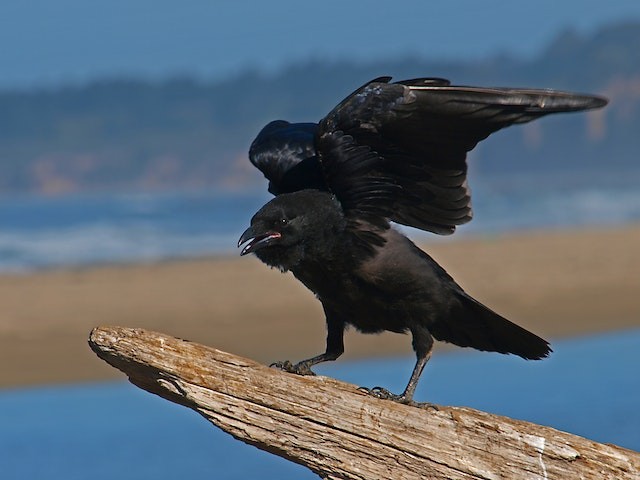
Are Crows Bad Luck? Bird's Bad Reputation Debunked
Crows are considered bad luck, according to superstitious. However, Science doesn't think it's actually the case.
Are Crows Bad Luck?
Crows and their role in our lives have been the subject of many myths and folktales rooted in folklore. Due to their jet-black feathers and high-pitched "caw," crows are often thought to bring ill luck. However, other people think that they are just like other birds.
Even though crows have nothing to do with death or anything of the sort, a gathering of crows is called a "murder." Also, numerous stories have developed linking crows to death, ill luck, gloomy weather, and funerals due to their look, which is black. It makes sense why a crow's caw is frequently employed in movies to set the mood for a spooky scene, according to Symbolsage.
The bird was the subject of a poem called "The Raven." A raven is a type of a crow. There's also a movie titled "The Crow." Naturally, both were about sinister, scary things.
Crows are entirely black, unlike other birds, giving them an eerie frightening appearance and imparting a sense of gloom to their nighttime surroundings.
If you view crows differently, they aren't as frightening as they first appear to be. It is unfair to crows that they have long been associated with dread and gloom in folklore and literature.
Crows' Bad Reputation Debunked
In both game and conservation situations, corvids-the bird group that includes crows, ravens, and magpies-are the target of various population control programs. These restrictions are justified by the notion that eliminating them benefits other birds. They are also thought to be powerful predators that can lower prey populations.
However, a study examined the effects of six corvid species on 67 birds, including game birds and passerine birds.
The investigation revealed that corvids have significantly less of an impact on other bird species than previously believed by compiling the data from 42 scientific studies and analyzing 326 interactions between corvids and their prey, ScienceDaily reported.
In 81% of the cases examined, corvids did not show a discernible impact on their potential prey, according to Beatriz Arroyo, the study's author and a researcher at the Institute of Research in Game Resources (IREC), a joint facility of the University of Castilla-La Mancha, the Castilla-La Mancha Community Council, and the CSIC (Spanish National Research Council). In 6% of the cases, they observed what seemed to be beneficial relationships.
The works examined showed that chicken survival rates and the number of eggs laid by other species were typically more excellent when crows were removed from their natural habitat. However, in quantity, it was only sometimes noted that other bird populations grew more extensive without corvids.
The study found that when crows were removed from the ecosystem, their prey saw a 46% increase in reproductive success and a less than 10% decrease in abundance.
Additionally, these experimental studies conducted in nine different nations - Canada, France, Norway, Poland, Slovakia, Spain, Sweden, the UK, and the USA - found that the productivity of their prey would increase in 60% of cases without the presence of corvids and other predators, including carnivores, but only in 16% of cases if corvids were eliminated but other predators were not.
It shows that crows, ravens, and magpies were not a significant threat to their prey. The scientists added that compensatory predation can also take place.
The study was published in the journal Ibis.
RELATED ARTICLE: Sumatran Tigers in Indonesia Recovering From COVID-19, Cause of Coronavirus in Animals Still Unknown
Check out more news and information on Animals in Science Times.














